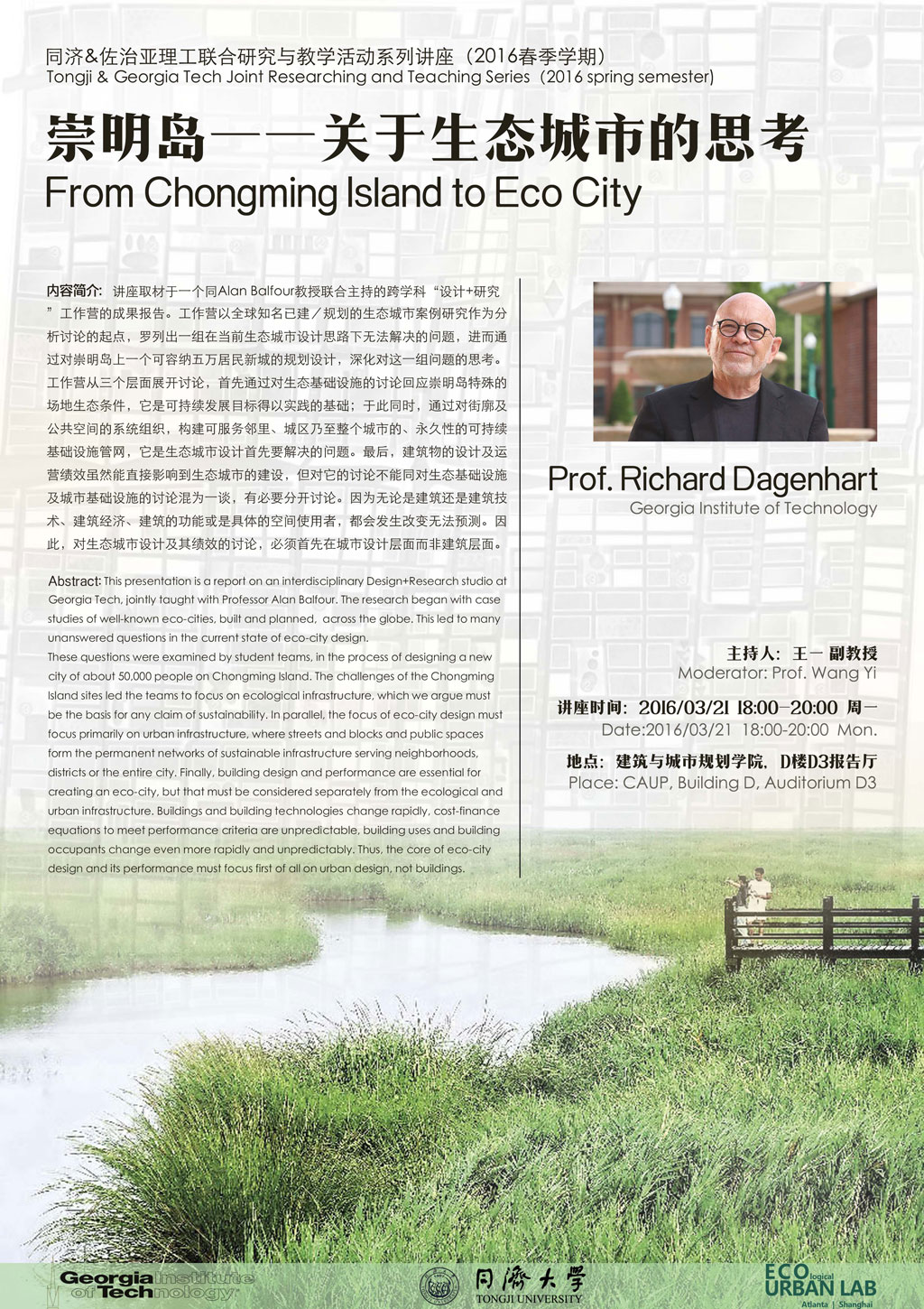新闻中心




讲座主题:
崇明岛——关于生态城市的思考
内容简介:
讲座取材于一个同Alan Balfour教授联合主持的跨学科“设计+研究”工作营的成果报告。工作营以全球知名已建/规划的生态城市案例研究作为分析讨论的起点,罗列出一组在当前生态城市设计思路下无法解决的问题,进而通过对崇明岛上一个可容纳五万居民新城的规划设计,深化对这一组问题的思考。工作营从三个层面展开讨论,首先通过对生态基础设施的讨论回应崇明岛特殊的场地生态条件,它是可持续发展目标得以实践的基础;于此同时,通过对街廓及公共空间的系统组织,构建可服务邻里、城区乃至整个城市的、永久性的可持续基础设施管网,它是生态城市设计首先要解决的问题。最后,建筑物的设计及运营绩效虽然能直接影响到生态城市的建设,但对它的讨论不能同对生态基础设施及城市基础设施的讨论混为一谈,有必要分开讨论。因为无论是建筑还是建筑技术、建筑经济、建筑的功能或是具体的空间使用者,都会发生改变、无法预测。因此,对生态城市设计及其绩效的讨论,必须首先在城市设计层面而非建筑层面。
From Chongming Islandto EcoCity
This presentation is a report on an interdisciplinary Design+Research studio at Georgia Tech, jointly taught with Professor Alan Balfour. The research began with case studies of well-known eco-cities, built and planned, across the globe. This led to many unanswered questions in the current state of eco-city design.
These questions were examined by student teams, in the process of designing a new city of about 50,000 people on Chongming Island. The challenges of the Chongming Island sites led the teams to focus on ecological infrastructure, which we argue must be the basis for any claim of sustainability. In parallel, the focus of eco-city design must focus primarily on urban infrastructure, where streets and blocks and public spaces form the permanent networks of sustainable infrastructure serving neighborhoods, districts or the entire city.
Finally, building design and performance are essential for creating an eco-city, but that must be considered separately from the ecological and urban infrastructure. Buildings and building technologies change rapidly, cost-finance equations to meet performance criteria are unpredictable, building uses and building occupants change even more rapidly and unpredictably. Thus, the core of eco-city design and its performance must focus first of all on urban design, not buildings.